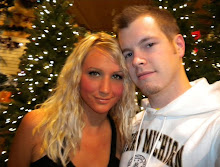Chinua Achebe's novel, Things Fall Apart, does a magnificent job of showing the transition between per-colonized and colonized Africa from a historic viewpoint while also managing to capture the feelings of the Africans. And while there were many changes between the two cultures, one of the most prominent consequences of Africa's colonization was the loss of most of their original cultural practices. The white Christians told the Africans that their customs were "bad," and as more and more Africans were promised power and land in exchange for their religious conversion, they, too, began to retort to the other Africans about their "bad" customs.
The passage about the Medicine Man, Okagbue Uyanwa, was very important. The pre-colonized African culture called in a Medicine Man when they needed to be lifted of some sort of evil spirit. Okonkwo called in Okagbue after his third son by Ekwefi, Onwumbiko, passed away, as he had not been given a proper burial. Upon discovering that the child died on the same market day which he had been born, the tribe took this as a significant circumstance. Okagbue then mutilated the child's corpse and dragged him by the ankle to bury in the "Evil Forest." This was supposed to discourage the evil spirit from reentering any more of their children. Of course, the mutilation of a child's corpse would have been highly discouraged by the white Christians, simply because they failed to understand the purpose. Customs that made complete sense to the African tribes were deemed un-Godly by the white colonizers. They often gave labd to Africans who paid them money, even though the Africans had very specific customs about land.
That always seems to be the case, doesn't it? If you can't understand something, then it must be bad. To make matters worse, the intentions of the Christians were not always pure and often were intwined in political matters as well as greed. They were solely responsible for the fall of an ancient culture, and it's no wonder that Okonkwo was driven mad.

1 comment:
Nice detail to notice -- you have added to my thinking about the novel.
Post a Comment